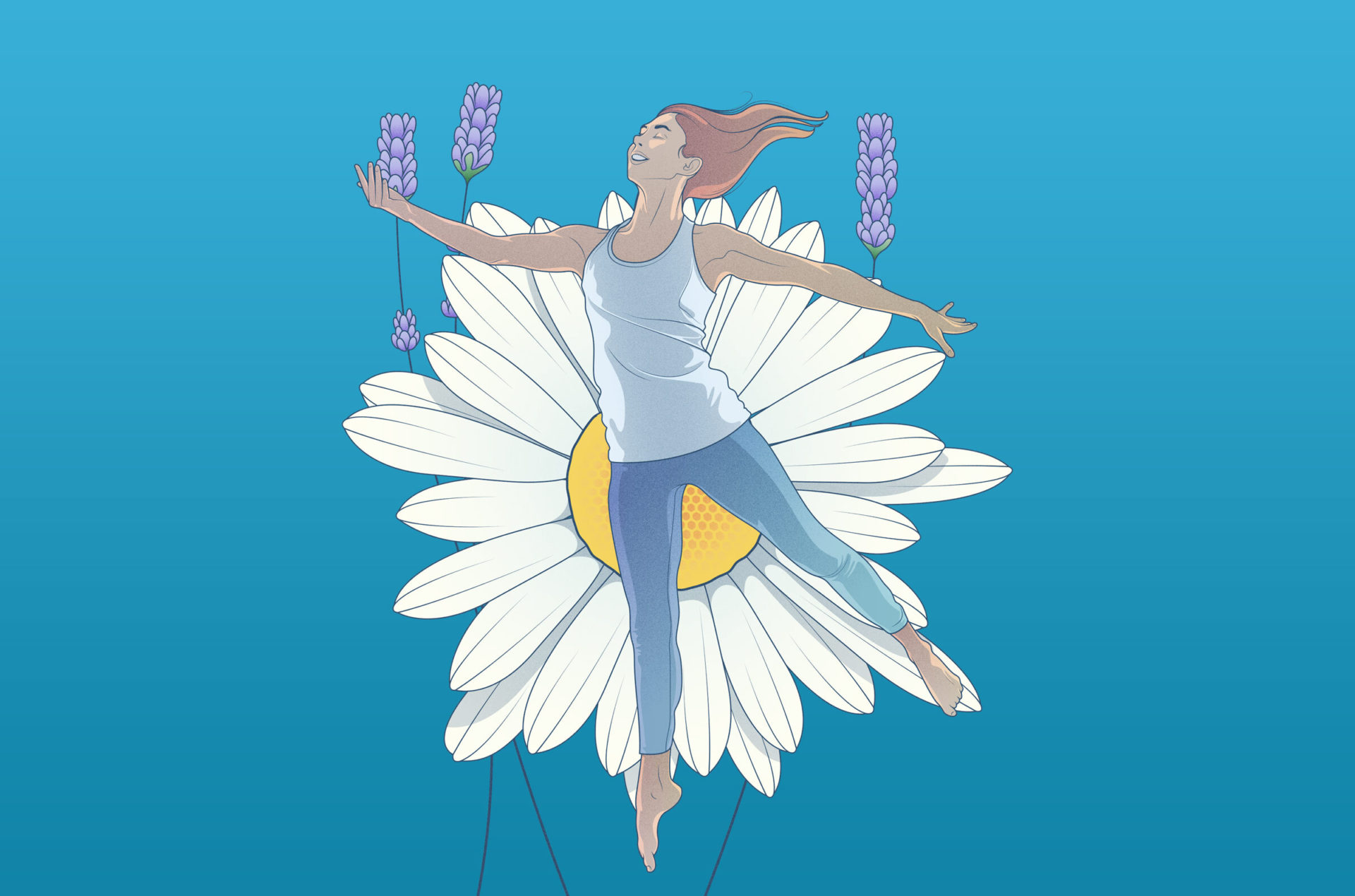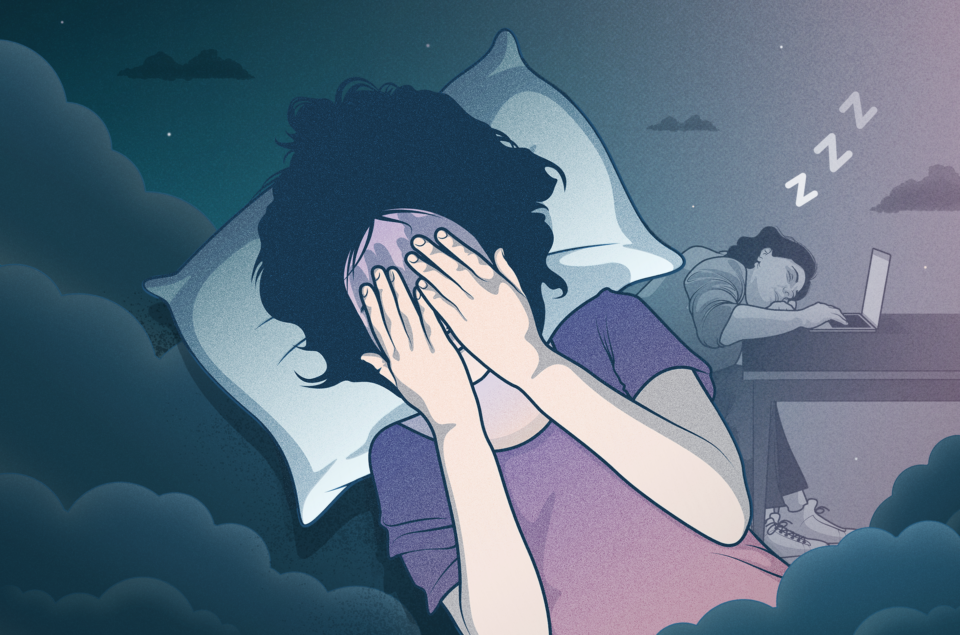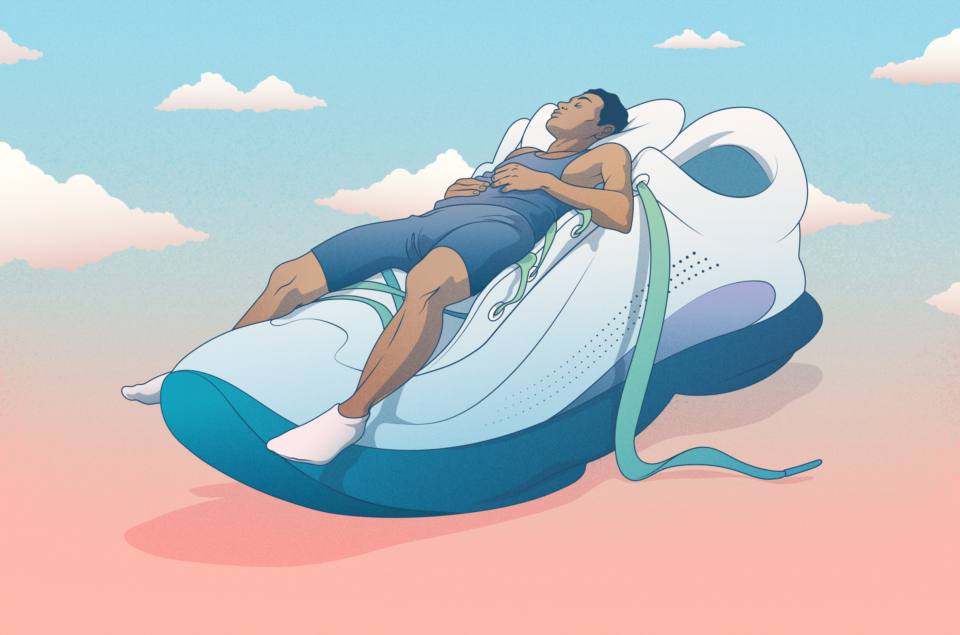A hot cup of chamomile tea or a warm glass of milk before bed will help you fall asleep – a misguided notion or is there actually some merit to this belief?
Natural sleep aids can often be found in nature or are derived from compounds found in the body and in nature. These are taken to support the onset of sleep. Natural sleep aids can take various forms, including liquids, e.g., chamomile tea and supplements. These are synthetically produced in a laboratory to replicate the ingredient found in the plant or body.
Homemade remedies to fight insomnia have been used across different cultures for centuries and natural sleep aids in the form of supplements are the modern-day equivalent. As more people turn to natural sleep aids – we will examine what they are, whether they’re safe, and how effective they are in achieving quality sleep.
7 Common Natural Sleep Aids
In a report published in 2021, the overall Sleep Aid market (including not only supplements but also technologies, mattresses, sleep devices, and so on) is projected to grow from $81.2 billion in 2020 to $112.7 billion by 2025. The fact that natural sleep aids aren’t as closely regulated as prescription medicines, is evidenced by the vast number of supplements available. And while we aim to highlight the most common ones, the list is far from exhaustive.
1. Melatonin
This hormone is found in your body and produced by your brain. It helps adjust your circadian rhythm as it’s produced as a response to darkness, but its production is blocked by artificial light. In today’s society given the prevalence of artificial lights even at night-time, melatonin supplements have become popular as a natural sleep aid to help initiate sleep.
Although there isn’t strong enough evidence to support the effectiveness of melatonin for those who suffer from chronic insomnia, it may still help with certain sleep disorders caused by shift work, jet lag, delayed sleep-wake phase disorders, and even some sleep disorders in children.
2. Chamomile
Chamomile has not yet proven to have any effect on insomnia, however, in smaller studies on non-insomnia populations, it was concluded that it may help improve sleep quality over a period of 4 weeks. Furthermore, certain research suggests that chamomile might be helpful to alleviate feelings of anxiety. Therefore, even though chamomile may not directly improve insomnia, its positive impact on anxiety may remove a common obstruction to the onset of sleep.
The long-term safety use of chamomile is unknown. However, it is generally considered safe in smaller amounts commonly found in teas. Although side effects tend to be uncommon, there may be rare cases of allergic reactions, nausea and dizziness.
3. Valerian
Valerian is a plant that has been used as a home remedy for centuries to treat a range of conditions, such as insomnia, fatigue, and stomach cramps. Although popular and often promoted to treat insomnia, knowledge about the valerian root is limited. Even with its long history as a natural sleep aid, the American Academy of Sleep Medicine advised against using valerian for chronic insomnia in adults. The evidence has simply been inconsistent to form conclusions on its helpfulness with sleep. Although generally considered safe, the long-term use of valerian is unknown, and there is also not enough knowledge on its use during pregnancy. Some have reported experiencing drowsiness as a side-effect and it should therefore not be combined with alcohol.
4. Lavender
Like chamomile and valerian root, studies on lavender have been limited, making it difficult to judge its effectiveness in treating insomnia. Studies of a lavender oil product taken orally suggested that it may be beneficial for anxiety, and by extension help sleep, however, the research was limited in its scope. Small amounts of lavender are generally considered to be safe.
5. Cannabidiol (CBD)
A compound extracted from the marijuana or hemp plant. However, CBD does not give you the ‘high’ that tetrahydrocannabinol (THC), the other active compound in the marijuana plant elicits. A study examining the effect of CBD on anxiety and sleep found that anxiety scores decreased and sleep scores improved. Concluding that it may hold benefits for anxiety-related disorders and have a positive impact on sleep. Safety concerns include nausea, diarrhea, and drowsiness. CBD can also interact with other medications.
6. L-Theanine
This is an amino acid naturally found in tea leaves and mushrooms. Some studies have found that administered in certain dosages, L- Theanine can help people relax before bedtime and get to sleep more easily. In another study, sleep quality problems occurred less in the group that received L-theanine compared to the placebo group. Although L-Theanine is generally regarded as safe, it’s not recommended for women who are pregnant or breastfeeding.
7. Tryptophan
Another amino acid that is found in food. Turkey, for example, contains tryptophan, as does whole milk, hence its reputation for sleep-inducing qualities. However, the jury is still out on whether tryptophan supplements truly improve sleep.
Concerns and risks of these natural sleep aids
As mentioned above, the natural sleep aid market doesn’t need to adhere to the same strict controls as the pharmaceutical industry. The lack of regulation can often limit information regarding the safety of natural sleep aids. It is therefore always advisable to consult your physician before beginning any extended treatment using natural sleep aids. There has not been any proven effect on chronic insomnia using natural sleep aids. Side effects can always vary, but these are some of the more common reported side-effects of natural sleep aids:
- Stomach & Headaches: Reports of gastrointestinal problems and headaches from natural supplements do occur for example Kava supplements have been linked to serious liver damage.
- Allergic Reaction: As many of the natural sleeping aids are plant derived, people with allergies to pollen or food ingredients should also practice caution as they may contain substances that trigger allergic reactions.
- Drowsiness: Certain natural sleep aids can cause lack of concentration or excessive drowsiness; this can be especially harmful if combined with alcohol or other prescription medication.
- Long-term Safety: Most of the existing studies on natural supplements report only on the short-term effect, leaving little clarity on the long-term effects.
- Women & Children: There tends to be limited studies when examining natural supplements in pregnant women and children.
The best natural sleep aid: good sleep habits
As discussed above, there are many different natural sleep aids and with an estimated 50-70 million Americans reporting sleep-related problems, it’s not surprising that it’s tempting to try anything that may hold the promise of a good night’s sleep. However, studies are inconclusive as to whether they help with the onset or the quality of sleep (so, more research is needed).
Instead of looking for quick fixes, miraculous pills, or supplements to fight your insomnia, the best way to start getting quality sleep or reducing the time to fall asleep is to start following best sleep hygiene practices: keep a regular sleep schedule, get some daylight, move your body, prepare your optimal sleep environment or avoid caffeine or alcohol late in the day. These are some of the habits you can include in your daily routine.
Don’t know where to start? Here are the top 10 habits for better sleep you can start with. And if you want more personalized insights into your sleep, the Sleep Cycle app provides tailored guidance on how you can change your routine to improve your sleep.
So, in conclusion, a warm glass of milk or cup of chamomile tea may induce sleep due to the psychological association of having it before bedtime, as opposed to any potent ingredient. It is helpful then to view it not as a quick fix, but more of a helpful nudge in your sleep routine. Essentially – warm milk works because I expect it to.










